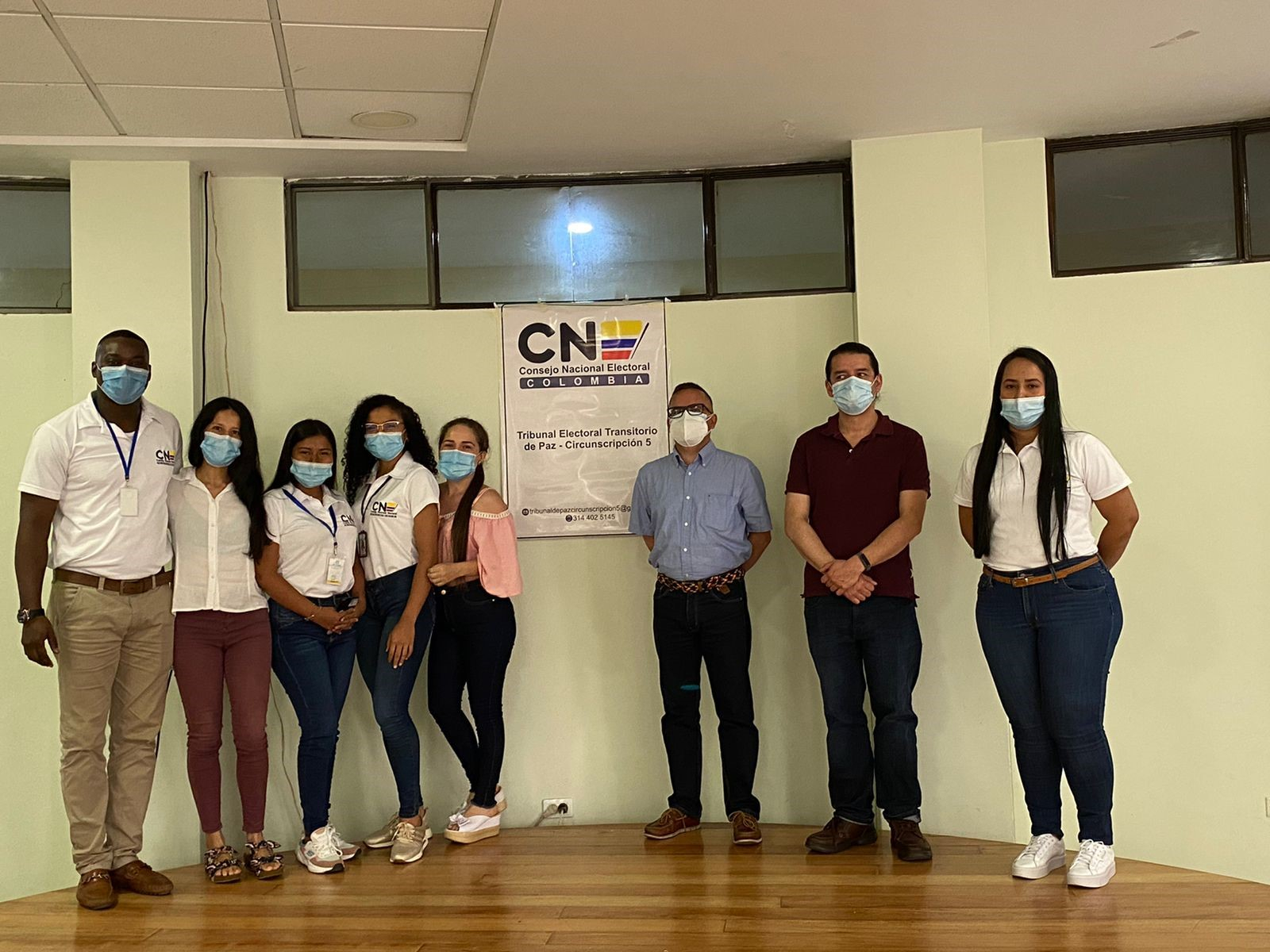
SHARE
Over the last two years, new elements to Colombia’s national elections have contributed to improving political accessibility for traditionally marginalized populations. The National Democratic Institute (NDI) implemented voter education initiatives for the inaugural Municipal Youth Councils (Consejo Municipal de Juventud, CMJ) on December 5, 2021, and the creation of 16 representatives of Special Transitory Districts of Peace (Circunscripciones Transitorias Especiales de Paz, CITREPs) as part of the March 13, 2022 legislative elections. These new components allowed for a more inclusive electoral process and strengthened the progress made towards implementation of peace accords signed with the Revolutionary Armed Forces of Colombia (Fuerzas Armadas Revolucionarias de Colombia, FARC) in 2016. NDI executed a number of programs supporting these critical elections as well as created new processes pertaining to civic education targeting disenfranchised populations. Through these efforts, we have seen a myriad of successes that help to promote democratic principles in the country as well as help the Colombian people to be better represented.
In preparation for the first ever Youth Councils elections, NDI worked with the Ministry of Interior, the National Civil Registry (Registraduría Nacional del Estado Civil, RNEC) and the National Electoral Council (Consejo Nacional Electoral, CNE) to develop tools that would improve citizen and candidate knowledge of and participation in the elections. NDI worked with electoral agencies to help develop and distribute a form (aval) that allowed parties to formally endorse CMJ candidates and a manual for CMJ candidates to develop legally required work plans. Consequently, the National Civil Registry endorsed the use of NDI’s manual for Youth Councils’ work plans. NDI also conducted virtual trainings with political parties, civil society organizations, and citizens on how to participate in these elections. This included a virtual course on the CMJ elections and provided voter education materials on NDI/Colombia’s “Estamos en Elecciones” (We Are in Elections) website. Nearly 400,000 people were reached through Estamos En Elecciones voter education initiatives. This meant that both political parties and youth were more educated about the elections, could make a more informed decision about participating, and had access to materials that could improve the quality of their participation as candidates or voters.
Similarly to the CMJ elections, for the CITREP elections, NDI disseminated educational materials on the special districts elections process to better educate candidates and voters. Because these were first time elections with complex and new rules, NDI’s work helped both citizens and candidates participate in a more informed manner. More specifically, given that CITREP districts are also primarily in rural areas, NDI’s educational materials improved the accessibility of another disenfranchised group: rural voters. NDI designed radio spots that promoted understanding of the CITREP electoral process by partnering with 43 community, commercial, police, and army radio stations to broadcast the radio spots nationwide, reaching an estimated four million listeners across the 16 CITREP districts. To support this expansive reach, NDI also trained 145 CITREP candidates and campaign staff representing 93 organizations on best practices to better represent their constituencies. Topics included the electoral process, the role of strategic communications, campaign finance regulations and strategies to address disinformation and violence against women in politics. Due to the complexity of these new processes, NDI managed a telephone “helpline” to answer questions and concerns from CITREP candidates and campaign teams, thereby minimizing confusion. Consequently, CITREP candidates who were mostly new to politics could better implement strategies to improve their participation as candidates, allowing more voices to be heard and considered in the CITREP election.
Another major focus NDI had in these two critical elections was the inclusion of marginalized people. In collaboration with the Ministry of Interior and electoral agencies, NDI implemented a forum on people with disabilities, which focused on proposals to minimize barriers to political participation and promote leadership roles for people with disabilities. NDI also partnered with the LGBTQI+ Political Participation Observatory (Observatorio de Participación Política LGBTQI+) to launch the Vote for Equality (Voto por la Igualdad) initiative for the 2022 legislative elections. The strategy included a corresponding website with information on the 24 openly LGBTQI+ candidates for Congress and a presentation on the “Protocol for the Electoral Participation of Transgender Persons” (Protocolo para la participación electoral de personas Transexuales, Transgénero y Travestis), which was first applied by electoral authorities and poll workers during the 2022 elections and will continue to be implemented in future elections. These initiatives are part of NDI’s continued efforts to promote political inclusion in Colombia and ensure that every voice is heard.
Through all of these programs, NDI worked to improve inclusion in the 2021 and 2022 electoral processes in Colombia, particularly with regard to the new CMJ and CITREP elections. These efforts are part of ongoing work that NDI has been implementing in Colombia since 1999, focused on electoral integrity, political reform, inclusion, work with victims of the armed conflict, and peace education. NDI will continue to support local partners and their goals for greater inclusivity in the Colombian political process to improve democracy in the country.
NDI's engagement in Colombia is implemented with support from the National Endowment for Democracy.
Author: Katy Mudge, Senior Advisor, Latin America and the Caribbean



